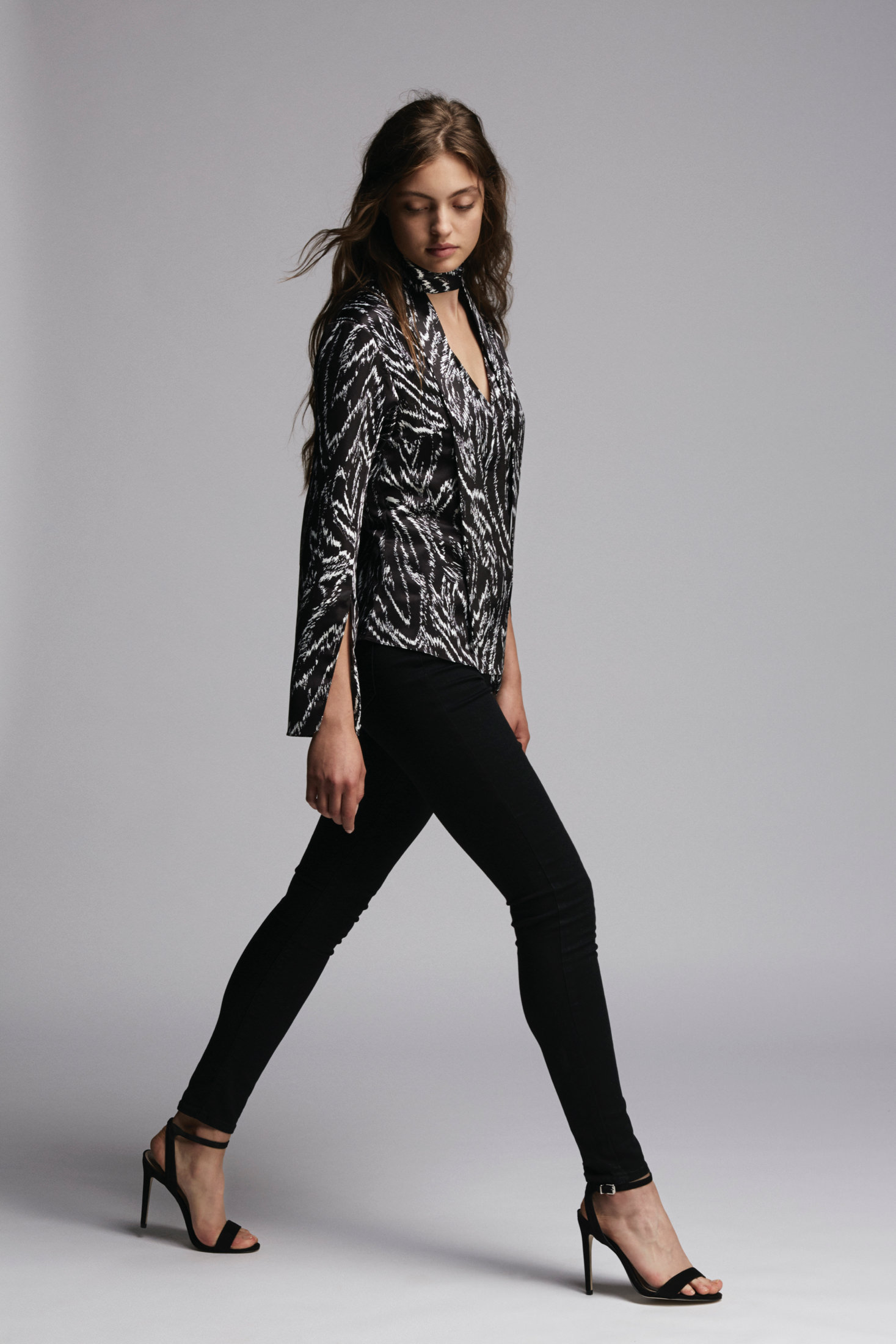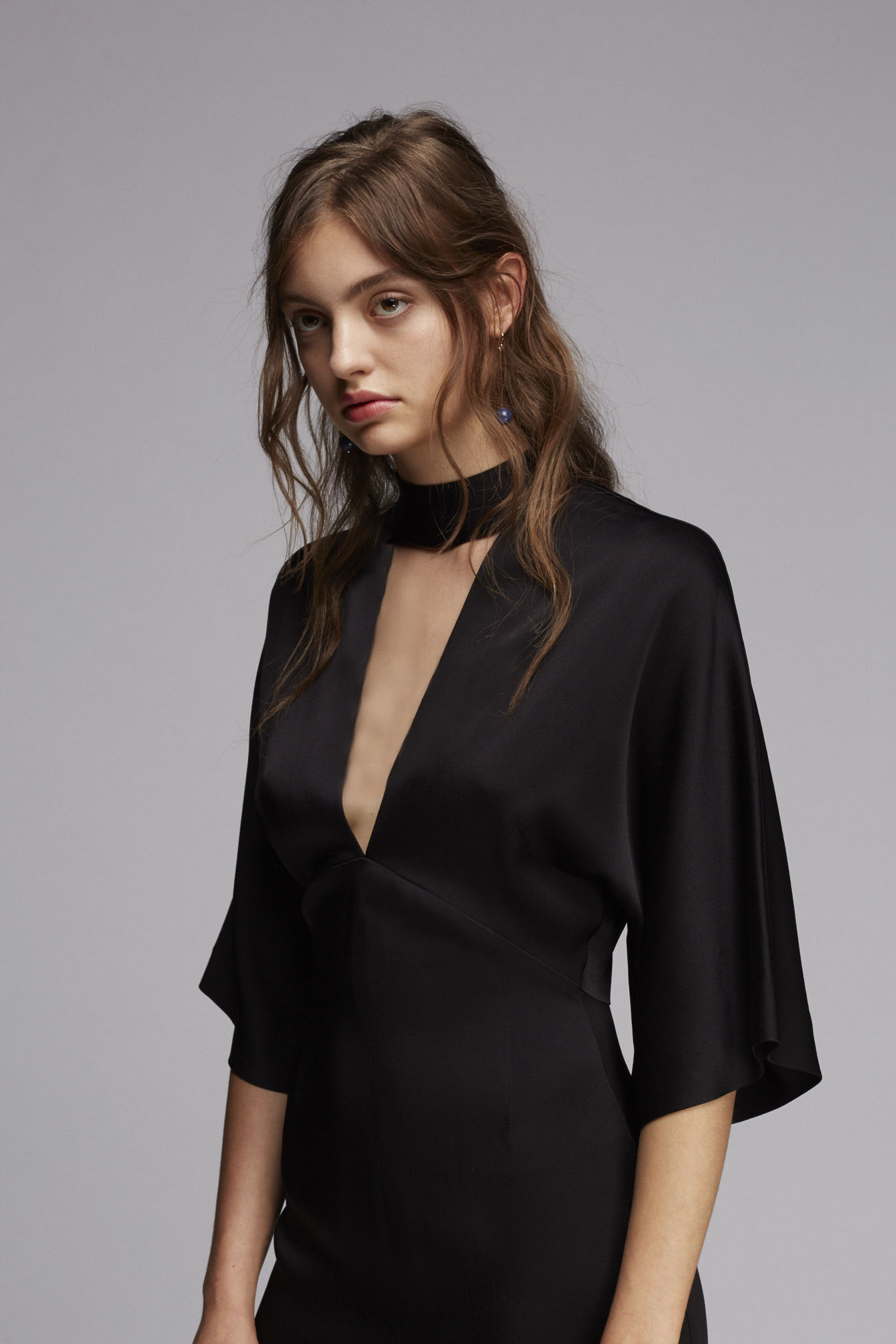Established only in 2016, Thoreau is a London-based ethical label offering versatile smart wear pieces that never go out of style. Operating on the principle of ‘personal style/collective conscience’, Thoreau believes that each garment carries a meaningful story even before reaching the wearer. In addition to manufacturing responsibly in the UK, we love Thoreau for boycotting ‘the buy it, wear it, bin it’ cycle of fast fashion, and for their stunningly chic cocktail dresses, equally suitable for a late-night soirée in the city, or as a more elegant take on everyday office wear…
THOREAU London, 2017.
What are your brand's key sustainability principles?
My business partner and I are vegan, so the environment and animal rights were the first non-negotiable principles for us. Second, ensuring that our garments are made by people who are treated and paid fairly was also a very high priority. Both of these principles drove our early decisions regarding reclaimed and sustainable materials and manufacturing in the UK to support local industry.
What informed the creation of Thoreau?
Our core motto that we always come back to is "personal style/collective conscience". We believe that you don't have to sacrifice style in order to be a responsible citizen. I wanted to create modern, versatile and affordable pieces for women who love fashion, care about quality and also want the garment to have as minimal impact on the planet as possible.
What dictated the creative direction you have chosen to go forward with?
I have always loved the 1960's/70's fashion and am drawn to this look, but longevity and versatility were the driving factors behind the garments. I wanted to imagine the pieces in my wardrobe in five or ten years, and have the garments move through seasons and looks beautifully.
"It’s hard to ignore the fact that your garment has had a whole life before you even take it home... Who made it? Were they paid fairly? Are the dyes toxic?"
THOREAU London, 2017.
THOREAU London, 2017.
How can we all make more mindful decisions regarding the garments we choose to buy? How important is quality versus quantity for you personally?
We think it is important that people are aware of the solutions as well as the problems. Otherwise helplessness and fear take over and nothing gets solved. Educating people about the things they consume and their impact on the planet is something we feel strongly about and are keen to promote as we grow. It's important to seek out brands that actively support and promote both social and environmentally responsible practices. If the price seems like a bargain, it's probably because the people who made the garment were paid almost nothing. Rather than buying 5 extremely cheap tops that you throw away soon after, seek out one good quality top that is made of sustainable materials by people paid fairly...and you'll realise it lasts for years!
"We believe that you don't have to sacrifice style in order to be a responsible citizen."
How do you aim to compete with the cult of fast fashion as a fairly new ethical brand?
It's definitely a challenge! We see fast fashion as a quick fix, going out and just buying without thinking about, if you really love it and what it's history is. It’s hard to ignore the fact that your garment has had a whole life before you even take it home... Who made it? Were they paid fairly? Are the dyes toxic? We hope this conversation grows along with our brand.
What's the 1 must-have item from your latest collection?
The Javan Dress! I have always found it difficult to find eco-friendly cocktail dresses. I wanted to create something that would be perfect for parties and prove that eco doesn't have to be boring!
Shop here:












